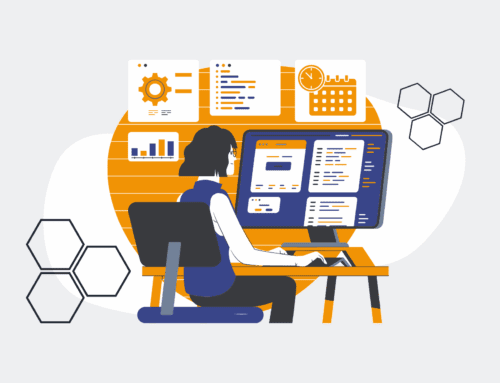Why HR Automation Consultants Are Not Just for Large Enterprises
For too long, HR automation has been perceived as an exclusive luxury, a complex digital transformation reserved only for the sprawling departments of Fortune 500 companies. This misconception often leaves small and medium-sized enterprises (SMEs) feeling excluded, convinced that the benefits of sophisticated HR technology are out of their reach. Yet, in today’s rapidly evolving business landscape, the truth is strikingly different: HR automation consultants are not just for large enterprises; they are an indispensable strategic partner for businesses of all sizes, especially those poised for growth.
Every business, regardless of its scale, grapples with the inherent complexities of human resources. From recruitment and onboarding to payroll and performance management, these critical functions are often bogged down by manual, repetitive tasks that consume valuable time, introduce human error, and stifle productivity. For smaller businesses, where every minute and every dollar counts, these inefficiencies can be particularly debilitating, directly impacting their ability to scale, innovate, and compete effectively.
Dispelling the Myth: Automation’s Accessibility for SMEs
The landscape of automation tools has democratized access to powerful technologies. What was once the domain of custom-built, enterprise-level software is now available through agile, low-code platforms and AI-driven solutions. An HR automation consultant acts as the bridge between these powerful tools and your specific business needs. They don’t just recommend software; they strategize how to weave these technologies into your existing operations, optimizing workflows to eliminate bottlenecks and free up your team for higher-value activities.
Consider the daily grind: sifting through hundreds of resumes, manually inputting new hire data, chasing down approvals, or orchestrating complex leave requests. These aren’t just minor irritations; they are significant drains on resources. An SME with a lean HR team feels the pinch of these manual tasks even more acutely than a large corporation with dedicated administrative staff. The time saved through automation translates directly into capacity for strategic initiatives – better employee engagement, more focused talent acquisition, and robust HR planning – which are crucial for sustained growth.
The True Cost of Manual HR Processes Beyond Scale
Many business leaders quantify the cost of HR by salaries and benefits, overlooking the insidious “opportunity cost” of manual work. When your HR professionals spend 25% of their day on administrative tasks that could be automated, that’s 25% less time they have to dedicate to building a stronger company culture, developing talent, or ensuring compliance. For a small business, this isn’t merely inefficient; it’s a strategic handicap. Human error in payroll, benefits enrollment, or compliance documentation can lead to costly fines, damaged employee morale, and legal repercussions – risks that scale proportionally with business operations, not just business size.
HR automation, guided by expert consultants, addresses these pain points head-on. It streamlines core processes, ensuring accuracy and consistency. For example, automating candidate screening and initial outreach significantly reduces the time-to-hire, a critical metric for fast-growing companies. Automated onboarding workflows ensure every new employee receives the necessary paperwork, training, and resources promptly, fostering a positive first impression and accelerating productivity.
How Automation Consultants Bridge the Gap
The real value of an HR automation consultant lies in their ability to understand your unique operational footprint and translate it into a tailored automation strategy. They begin with a diagnostic approach, much like our OpsMap™ at 4Spot Consulting, to identify inefficiencies and pinpoint the highest-impact automation opportunities specific to your business. This isn’t about implementing technology for technology’s sake; it’s about delivering clear, measurable ROI.
For a small to medium-sized business, a consultant provides the expertise and bandwidth that an internal team might lack. They bring an objective perspective, a deep understanding of various tools (like Make.com, Keap, or PandaDoc), and the strategic framework to connect disparate systems into a cohesive “Single Source of Truth.” This ensures data integrity, eliminates redundancy, and empowers your team with real-time insights, allowing you to make faster, more informed decisions.
Identifying Your Automation Opportunities
Where do you begin? Look for the repetitive. Look for the points of friction. Are your recruiters spending hours manually scheduling interviews? Is your HR team struggling with document generation and e-signatures? Is data entry a constant chore between different platforms? These are clear signals for automation. A strategic consultant helps you prioritize these areas, focusing on solutions that offer the quickest wins and the most significant long-term impact on your operational costs and team efficiency.
Imagine the impact of saving 150+ hours a month by automating resume intake and parsing, as we’ve helped clients achieve. This isn’t just about saving time; it’s about transforming the capacity of your team to engage in work that truly drives your business forward. It’s about reducing low-value work from high-value employees, allowing them to focus on what they do best – building relationships, fostering talent, and contributing to your company’s strategic vision.
Choosing the Right Partner for Your Automation Journey
When selecting an HR automation consultant, look for a partner with a proven track record, a strategic-first approach, and a deep understanding of ROI. They should be experts in connecting dozens of SaaS systems and should emphasize outcomes over mere implementation. The right consultant will not only build the systems but also provide ongoing support and optimization, ensuring your automation infrastructure evolves with your business. For any growing enterprise, leveraging HR automation is no longer a choice but a necessity to stay competitive and scalable. It’s time to redefine what’s possible for your business, regardless of its size.
If you would like to read more, we recommend this article: Strategic HR’s New Era: The Indispensable Role of AI Automation Consultants








